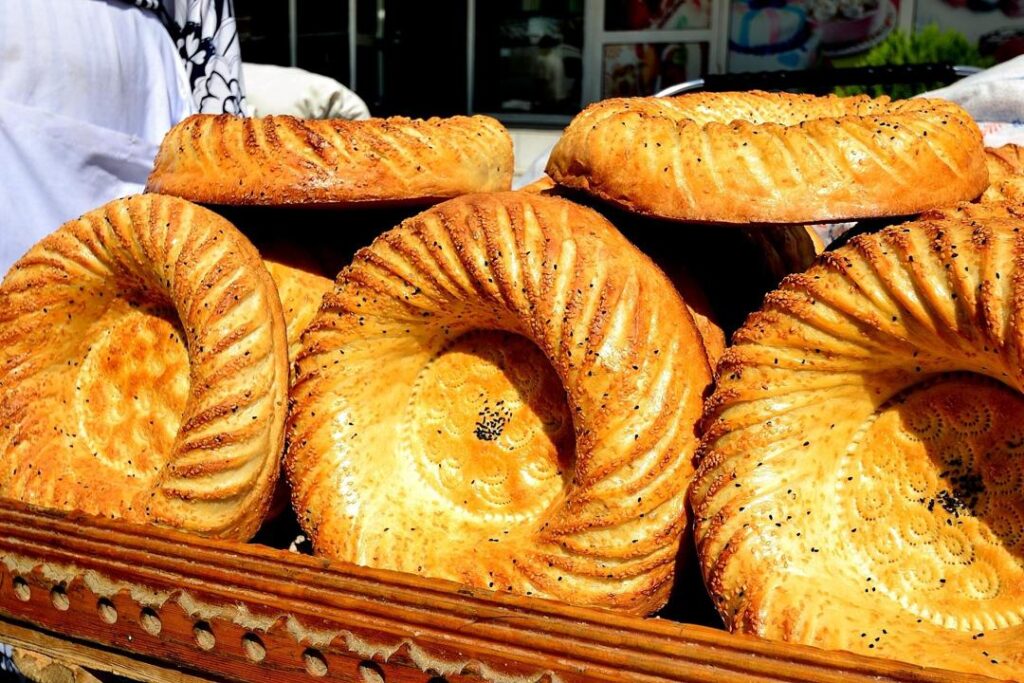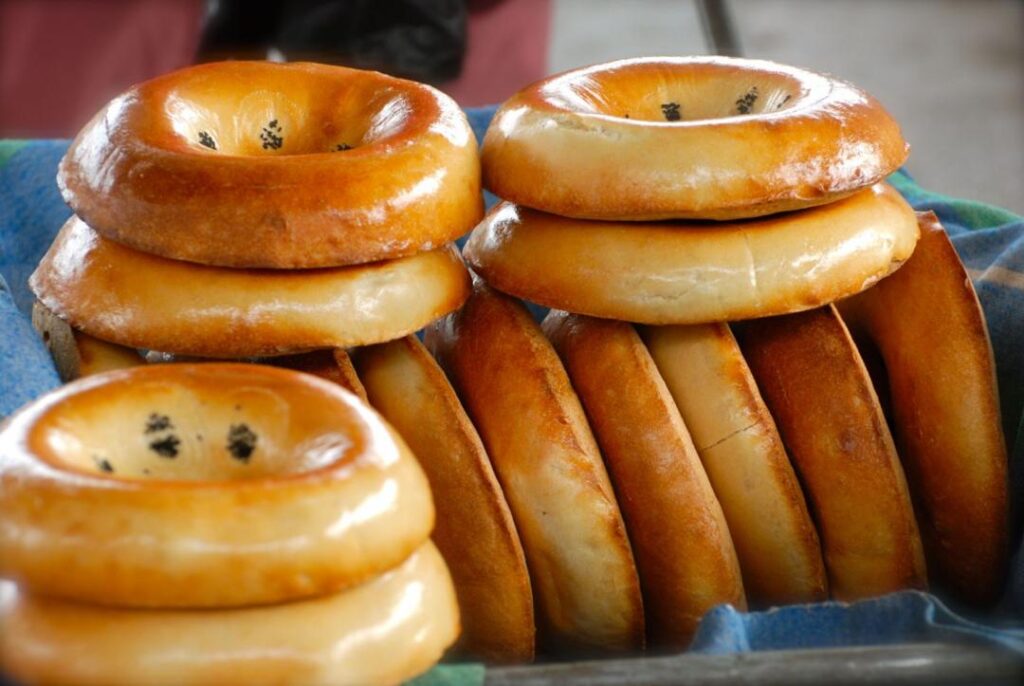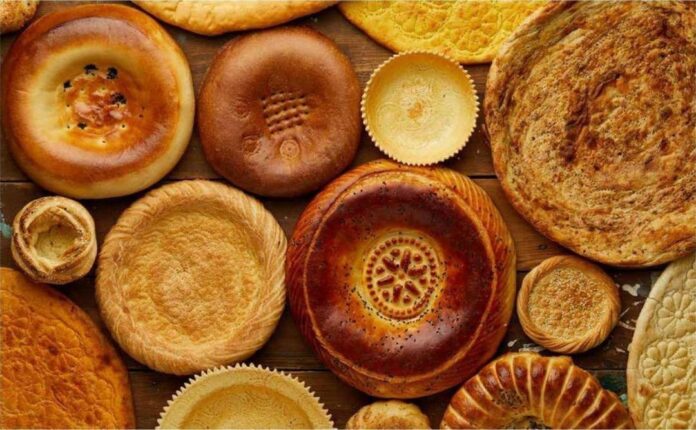By Risolat Makhsimova
Ancient customs beautifully intertwine with the pulse of modern life in Asia. In the heart of this continent, Uzbekistan, bread is valued not only as a type of food but as a sacred symbol, enveloped in legends and stories that testify to its prestige in society.
There’s a captivating story on a khan of Bukhara who loved the taste of Samarkand’s bread that he summoned the city’s top baker to make that kind of bread in Bukhara. Despite the baker’s meticulous efforts, the bread lacked the soulful flavor of its Samarkand counterpart. Khan did not understand and demanded the reason behind that situation. The baker, with a hint of sorrow, confessed that the essence of Samarkand’s air was the missing piece – a whimsical and profound testament to the bread’s unique essence.

This story captures the spirit of Uzbek bread-making, a craft that sees over 12,000 loaves baked in Samarkand each day. The method might seem straightforward – dough left to rise overnight, shaped into rounds, and gently flattened to keep their shape, all adorned with a patterned stamp before being polished with sesame seeds and brushed with a mix of egg yolk and oil for a radiant golden colored bread.
All in all, beyond its simple ingredients and preparation lies a deep cultural significance. This bread, so ordinary in appearance, is a vibrant thread woven into the fabric of Uzbek life, symbolizing the enduring bond between the people and their rich and historical traditions.

Anyone who has ever visited Uzbekistan and tasted the freshly baked bread cannot forget its unique flavor. Indeed, you won’t find the taste of bread, freshly torn from the tandoor, anywhere else. The profound respect for bread and bread products in the country has been shaped over centuries. Below, we present some interesting facts related to bread, which has become a tradition in Uzbekistan.
- In Uzbekistan, bread is never cut with a knife. At the beginning of a meal, it is torn by hand and several pieces are distributed to each guest.
- Bread is never placed upside down, with the top side facing down. This is considered disrespectful to the bread.
- There’s a tradition in Uzbekistan: before a family member goes on a long journey, they must bite off a piece of bread before leaving the house. This bitten piece of bread is then hung in a visible place in the house. According to the elderly, the bread eagerly awaits the return of its owner from their journey.
- To ensure that the relationship between newlyweds is always sweet and lasts a lifetime, there’s a custom of breaking bread before the wedding.
- Since bread is round, it sometimes also serves as a bowl. Sweets are placed on it and distributed to loved ones, and it’s customary to serve shashlik, grilled, fried, and boiled meat on top of bread.
- When setting the table for guests, the number of breads on the table should be even. If there’s only one or three breads left in the house, one of them is torn in half. Odd numbers of bread are usually brought to the table during mourning ceremonies.
- It’s customary to send off guests with gifts and sweets, including bread. The number of these breads should also always be even.
- The bread-making process from start to finish requires manual labor. There’s an interesting story about this: in Central Asia, locals usually bought their bread not from stores but from bakeries. In the 1970s, the Ministry of Food Industry of the USSR set a demand to mechanize bread baking for the Scientific Research Institute. The institute’s specialists worked hard on the project for a long time but ultimately had to admit that it was impossible to replicate the shape of the bread with a machine.
- There are many methods and recipes for making bread in Uzbekistan. Each region and territory of the country can boast its unique recipes. For example, layered bread is very popular in the Fergana Valley. During its preparation, each layer is greased with butter or cream. This region is also known for its jizzali and kok patir. The breads from Qashqadaryo are baked from rye flour and have a unique taste that stays for a lifetime. Zog‘ora bread is remarkable for being prepared based on an ancient recipe. Samarkand bread will amaze you with its richness and thickness.






